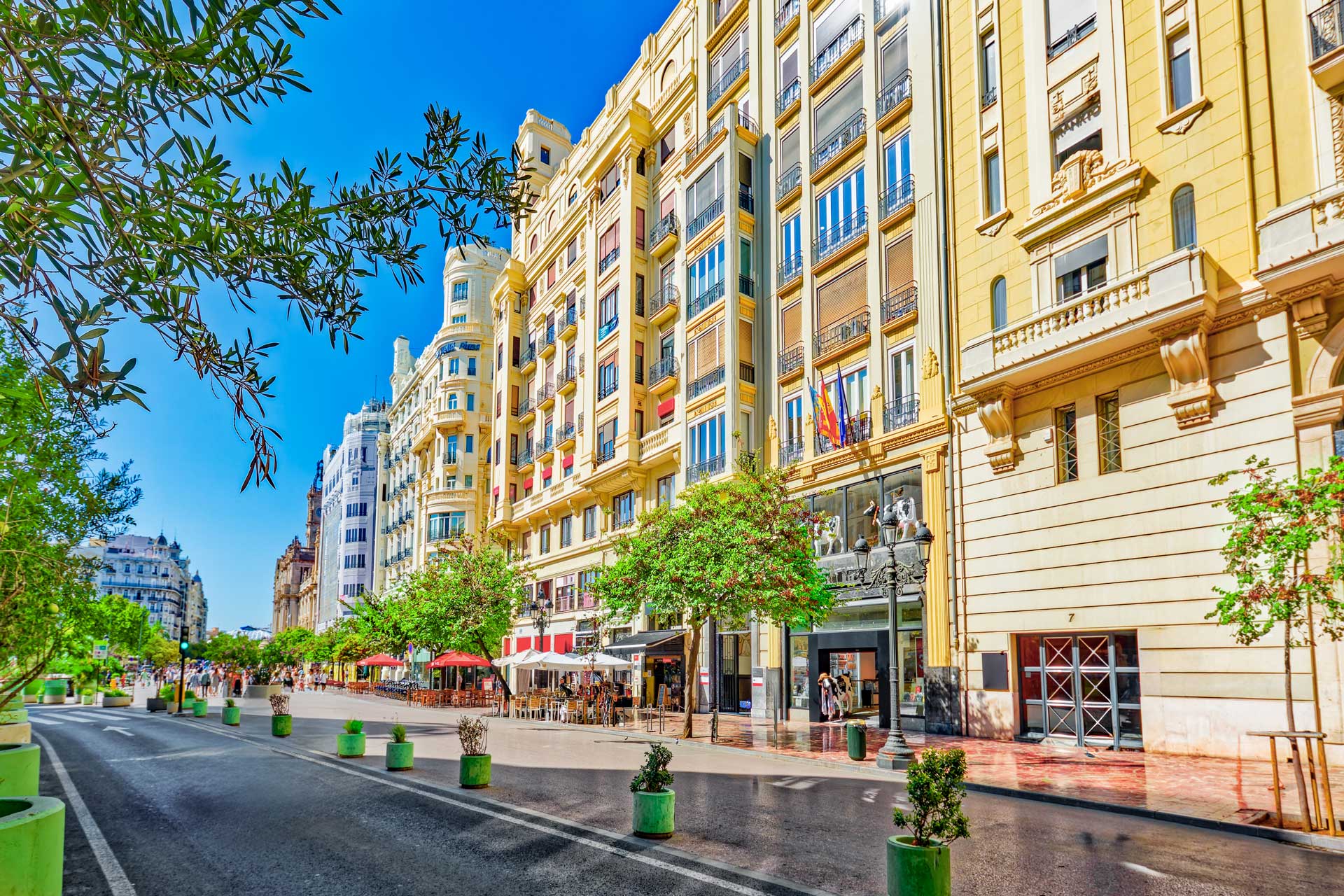Friendly reminder: the information in the Pre-Move FAQ below is general and for orientation only. Requirements, availability, costs, and procedures can vary with your personal situation, the time of year, and the authority handling your case. We strongly recommend speaking with tax and immigration specialists in parallel with us. All our packages include a courtesy consultation with vetted specialists.
1) I’m an EU or EEA citizen. What paperwork do I actually need?
If you plan to stay more than 3 months, you’ll register as an EU resident and obtain your EU certificate with your NIE number. You’ll be asked to show that you’re working or self-employed, or that you have sufficient funds and healthcare. After you move, you’ll register on the city padrón. It’s a straightforward sequence when it’s planned in the right order.
2) I’m not an EU citizen. What’s the right visa path?
Most newcomers choose one of these: Digital Nomad, Non-Lucrative, Work, Student, or Family Reunification. Each has its own logic around income, insurance, and documents. The key is to pick the visa that matches your real life and timeline, then prepare a clean file at consulate level so Spain is simple on arrival.
3) What’s the difference between NIE and TIE?
Think of the NIE as your identification number. Many procedures ask for it even before you’re a resident. The TIE is the physical residence card you receive once your permit is granted. EU citizens don’t get a TIE; non-EU residents do.
4) Do I need to register at City Hall? What is the padrón?
Yes. Once you have a housing contract, you register your address on the padrón. It unlocks many practical steps such as health cards and school admissions. We help line up the timing so nothing blocks the next step.
5) How does healthcare work at the beginning?
EU workers and retirees often qualify for public cover once they’re registered locally. Non-EU newcomers usually start with private insurance required by their visa, then move into public healthcare when eligible. We map your path to a SIP card or the right private plan so you’re covered from day one.
6) Schools: can we access public or concertado, and what about international schools?
Public and concertado schools use a regional calendar but there are extraordinary admissions when places exist. International schools admit year-round if space is available and many have bus routes from the suburbs. We check real-time availability and advise on a plan A and a plan B so you’re never stuck.
7) Best areas for families near international schools
North-west suburbs are popular for houses with gardens and quick access to top schools: Rocafort, Godella, La Cañada, L’Eliana, Bétera. For the northern coast schools, Puçol is practical. We look at the triangle of commute, budget, and daily rhythm, then shortlist areas that match your family’s routine.
8) Will we feel welcome in Valencia?
Most newcomers tell us they feel included quickly. Valencia is friendly and practical, with plenty of language classes and community networks. If you show up with curiosity and respect, you’ll find doors open. We also guide you toward local resources that make integration smoother.
9) Do I need to speak Valencian? What about Spanish?
Spanish and Valencian are co-official. Day-to-day life works well in Spanish. Schools use a plurilingual model where Spanish, Valencian, and English each have space depending on the program. We’ll help you choose a school language pathway that suits your child.
10) Renting a home: what should I really expect?
For a primary residence, standard lease terms are 5 years when the landlord is a person or 7 years when it’s a company, with possible extension after that. The legal deposit is 1 month; extra guarantees are typically capped at 2 months. You’ll see 11-month contracts in the market, usually for temporary stays. If your intention is a primary home, we ensure the contract structure protects your rights and complies with the law. Large upfront prepayments are a red flag; we negotiate safer alternatives.
11) Can I rent before my visa or residence card is ready?
It’s possible, but owners will need strong proof of solvency and identity. For non-EU applicants, having the visa granted or a robust guarantee can make the difference. We package your file so it is both secure for you and reassuring for the owner.
12) Driving licences: what happens after we arrive?
EU licences are valid in Spain. For many non-EU licences, residents can drive for up to 6 months after becoming resident. After 6 months, switching to a Spanish licence becomes mandatory. Some countries have exchange agreements that make this simple; others require a theory and practical test. We confirm your exact route and book your slots.
13) Bringing a car to Spain
If you become resident, you’ll need to register your car in Spain within the legal timeframes, complete a technical inspection, and handle the relevant taxes. If you’re moving your habitual residence from abroad, there are potential tax exemptions. We prepare the checklist so nothing is missed.
14) Internet and mobile: is suburban coverage good enough for remote work?
Yes. The Valencia metro area has very good fiber and mobile coverage, including many suburban streets. The trick is picking a provider that onboards newcomers smoothly and scheduling installation around your move-in date. We coordinate that for you.
15) Shipping household goods: will I pay customs and VAT?
If you are moving your habitual residence from outside the EU, used personal effects can qualify for exemptions. The key is timing and documentation. We outline what to ship, what to carry, and how to sequence the paperwork.
16) Bringing pets
You’ll need microchip and rabies vaccination, with specific timings. From some countries, an additional antibody test and official certificates are required. Airlines and routes also have rules. We create a pet timeline so there are no surprises at the gate.
17) When do I become tax resident in Spain?
A common rule is more than 183 days in Spain within the calendar year, plus other tie-breakers. Some newcomers may qualify for Spain’s special inbound regime known as the Beckham Law. We always suggest a pre-move call with a tax advisor to avoid costly decisions later.
18) Healthcare for retirees
EU retirees often access public healthcare after proper registration. Non-EU retirees usually begin with comprehensive private cover, then may transition later depending on status. We build your path around your real eligibility.
19) Language in schools: will my child be okay without Valencian?
Yes. Many families arrive with no Valencian. Schools gradually integrate students and provide support. We’ll help you choose a program where your child can thrive academically and socially from week one.
20) How far in advance should we start?
For visas, budget 2 to 4 months of preparation depending on the country. For schools, the earlier the better. For rentals, 4 to 8 weeks usually works. For a purchase with mortgage, plan on 3 to 6 months. We design a timeline with buffer so you can breathe.
21) Can we handle everything in English?
A lot is possible in English, especially in international contexts, but key offices, utilities, and schools operate primarily in Spanish and sometimes Valencian. We attend with you, translate, and make sure nothing is lost in translation.
22) Integration resources once we arrive
There are helpful public services and community programs for first orientation and language. We connect you with options near your new home and introduce you to local networks so you feel settled faster.
23) What paperwork should I prepare before house-hunting?
Bring passports, proof of income or savings, a short profile from your employer if applicable, previous landlord references, and your visa approval if you’re non-EU. A Spanish bank account helps but isn’t always required at the viewing stage. We’ll give you a tailored checklist.
24) A landlord is asking 6 to 12 months upfront. Is that normal?
It is often requested for non-residents, but it’s risky for tenants and not the best practice for primary homes. We negotiate within legal limits, propose fair guarantees, and protect your cash flow and rights.
25) Can I keep foreign plates indefinitely?
If you become resident, the short answer is no. You’ll need to register the car in Spain and meet the technical and tax requirements. We map out the steps and timing so you don’t get fines.
26) School runs and daily commutes from the suburbs
Many international schools run their own buses. Parents often combine car plus metro for city commutes. During our area tour we test real-world routes at typical hours so your decision is based on lived timing, not maps.
27) Is Valencia truly workable for remote work and modern family life?
Yes. Reliable digital infrastructure, manageable commutes, and everyday services close at hand are what make Valencia feel practical. The lifestyle is not about perfection; it’s about a rhythm you can sustain.
Ready to take the next step? You can book your pre-move consultation(s) pre-move consultation(s) here and start planning your Valencia relocation with clarity and confidence.
Final reminder: every case is unique. The answers above are informative and can shift with your profile, nationality, and timing. We recommend coordinating with our team and, in parallel, with tax and immigration specialists. Our packages include a free consultation with both so you make confident, compliant decisions from the start.




